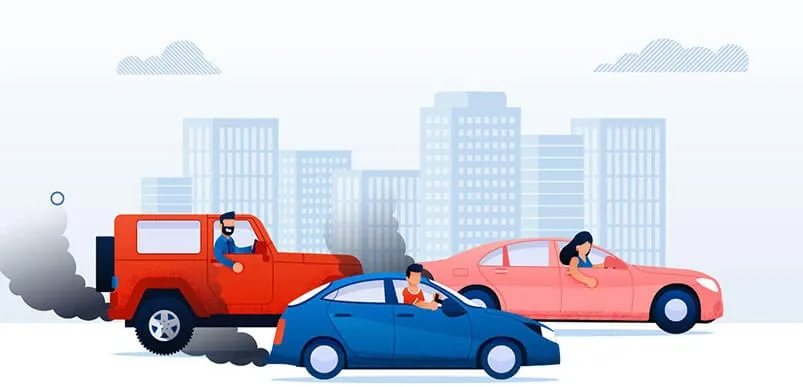Understand the Vehicle Scrappage Policy in India. Learn about the government's initiative to promote sustainable vehicle disposal.
Vehicle Scrappage Policy in India: Understanding the government's initiative
Vehicle Scrappage Policy was introduced by the Ministry of Road Transport and Highways in India in the year 2021 as a part of the ‘Green India’ initiative towards climate change. The policy aimed to phase out all vehicles including private cars that are more than 15 to 20 years old if they fail in fitness test. Such vehicles are considered ELV (end-of-life vehicles) to encourage new purchases equipped with environment-friendly technologies.
Vehicle Scrappage Policy – An overview
As per the Vehicle Scrappage Policy, emission tests and fitness tests need to be done mandatorily for commercial vehicles that are 15 years old and passenger vehicles that are more than 20 years old. The vehicle is scrapped after checking in for the engine performance, brake quality, and many other factors. The policy has established scrapping provisions and automated stations for testing in different phases. As per Vehicle Scrap Policy 2023, fitness testing for heavy commercial vehicles began on 1st April 2023 at the automated testing station. The testing for private and other commercial vehicles will start from 1st June 2024.
The vehicle owner also gets the incentives on opting for the Vehicle Scrappage Policy. Incentives can be in terms of discounts on new purchases, road tax refunds, or registration fee waivers. Automobile companies may provide a discount of up to 5% on new vehicle purchases and registration fees for the new vehicle are waived. The state may also provide road tax refunds of up to 15% and 25% for commercial vehicles and private vehicles respectively.
Objectives of the Vehicle Scrappage Policy
The following are the main objectives of the Vehicle Scrappage Policy:
Pollution control
The primary objective of the Vehicle Scrappage Policy is to benefit the environment by reducing pollution and improving the air quality index. Scrapping the vehicles that emit pollutants at higher levels from the road can positively impact climate change.
Energy Conservation
Phasing out old cars and replacing them with fuel-efficient new car models can help with energy consumption and enhance fuel efficiency. Newer cars are coming with advanced technologies that can save significantly on fuel costs and help reduce the carbon footprint of the transportation industry at large.
Road safety
Road safety is one more important objective of the Vehicle Scrappage Policy in India. Scrapping old vehicles that do not pass the fitness and emission tests can significantly enhance road safety by reducing road accidents due to mechanical breakdowns. Replacing them with modern cars with good safety features can improve road safety and reduce accident mishaps. However, it is important to buy a comprehensive car insurance to secure yourself and your vehicle on the road irrespective of the vehicle model and its advanced features.
Boost automobile sales
The automotive industry has also been majorly impacted by the decline in demand by the COVID-19 pandemic. The Vehicle Scrap Policy also aims to boost automotive sales by stimulating the demand for new vehicles with scrapping incentives.
Waste management
Removing the unfit old vehicles on the road facilitates proper disposal of vehicle components. Resource recycling reduces the burden on landfills and promotes waste management.
Conclusion
To sum up, the Vehicle Scrappage Policy in India aims to achieve a range of environmental, economic, safety, and waste management objectives. It also aims to boost automobile sales by incentivising the scrappage of old vehicles and promoting the adoption of newer, and safer vehicles.

Get Quick Quote


